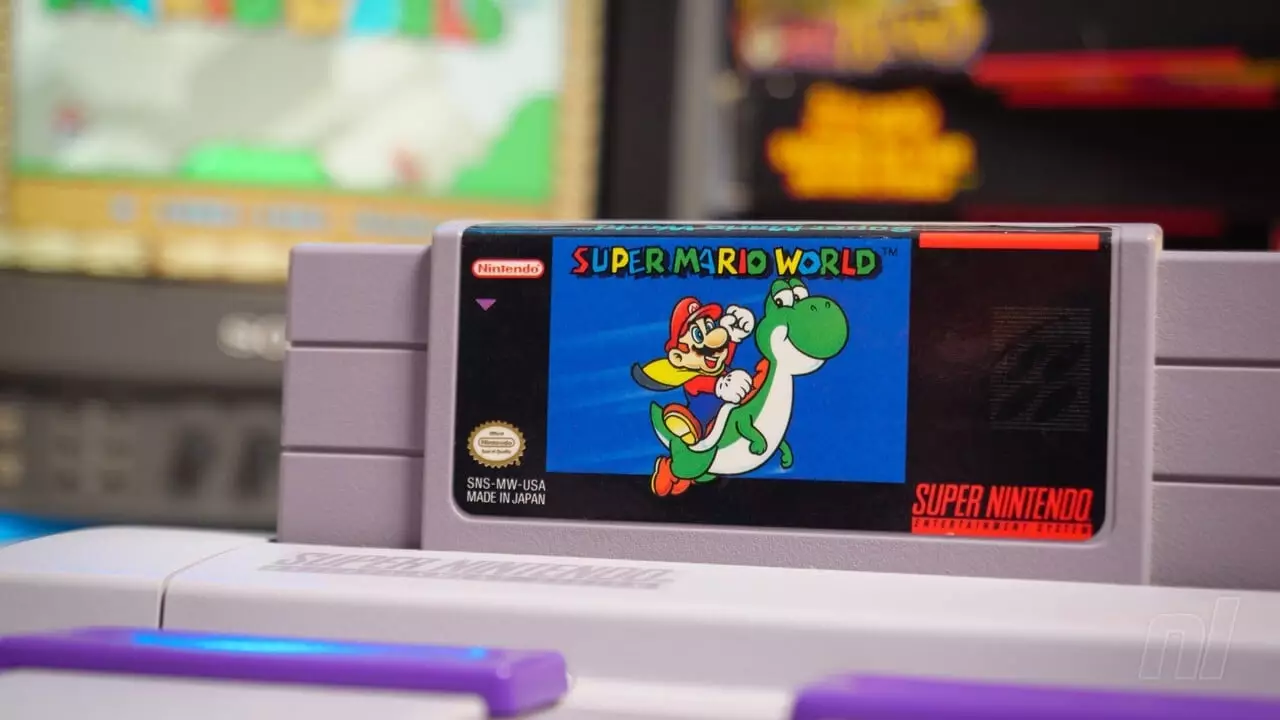Recently, Nintendo’s foray into the museum sphere has captured the attention of gaming enthusiasts and nostalgia seekers alike. This new establishment in Japan is not just a repository of nostalgia, but rather a curated experience displaying some of the company’s most beloved classic titles. Visitors to the museum have the opportunity to engage with retro games that shaped the gaming industry, showcasing the technological and creative evolution that Nintendo has undergone over the decades. However, the underpinnings of how these classic games are presented have stirred a considerable debate among the gaming community.
The Emulation Debate
At the heart of the discourse lies the method of emulation employed in the museum’s displays. A video shared by a user known as ‘ChrisMack32’ pointedly captured a moment where a Super Nintendo controller was disconnected from a Windows PC during a gameplay session of Super Mario World. As the controller was unplugged, an unmistakable Windows USB disconnection sound could be heard, prompting widespread speculation regarding the means by which Nintendo has opted to showcase its retro library. This revelation does not simply raise eyebrows; it raises concerns regarding consistency, authenticity, and the ethical considerations surrounding the use of emulation software.
Nintendo has famously taken a hard stance against emulator developers and ROM distribution, often pursuing legal action to protect its intellectual property. The company has articulated that emulation can “stifle innovation,” a claim that has sparked continued discussions about the merits and downsides of using emulators in commercial settings like museums. The perceived hypocrisy of utilizing emulation while simultaneously condemning it has drawn ire and disbelief from fans and industry observers who question the integrity of such a practice.
Mixed Reactions from the Gaming Community
The online gaming community’s reactions to this revelation have been anything but uniform. Some believe that the use of emulators, particularly open-source options, could streamline the process of displaying classic games without the cumbersome maintenance of aging hardware, which is increasingly difficult to sustain. This perspective sees emulation as a necessary evolution rather than a straightforward violation of tradition. Conversely, others hold a more critical view, arguing that by leveraging emulation, Nintendo risks devaluing the cultural significance of its historical games, transforming them into mere commodities rather than cherished artifacts deserving preservation.
While the optimal way to interact with Nintendo’s legacy remains a contentious topic, it’s essential to acknowledge that the alternatives provided by the Nintendo Switch Online service, which facilitates access to hundreds of classic titles, may provide gamers with avenues to relive their childhood experiences without the complications of emulation. Yet, the museum’s approach feels like a missed opportunity to celebrate Nintendo’s legacy in a manner consistent with its values.
Nintendo’s museum endeavors to present a multifaceted view of its gaming history, yet the methods chosen to do so have sparked significant controversy. Emulation, while practical, raises ethical concerns that challenge both the company’s image and its relationship with loyal fans. As the gaming world continues to evolve, questions about authenticity, preservation, and innovation remain at the forefront of the discourse surrounding gaming heritage and how best to honor it. Will Nintendo find balance, or will its museum become a battleground for ongoing debates regarding the very essence of gaming culture?

